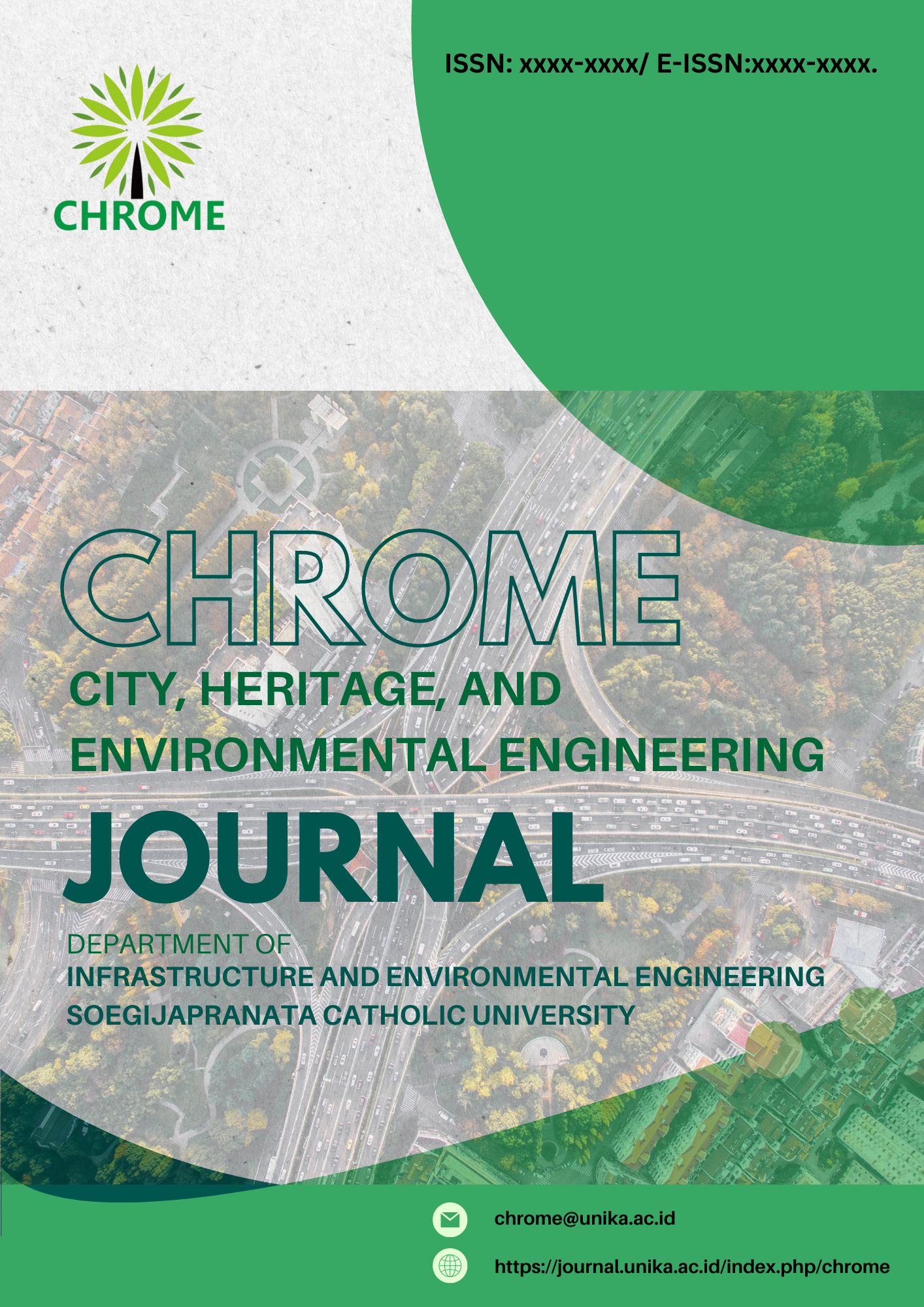Designing a Sustainable Organic Waste Management Strategy Based on Biopore Technology for the Dapur Oma Rempong Catering Business in Semarang
Abstract
Organic waste from the catering sector has become a significant concern due to the increasing volume of food waste generated. This study aims to identify cleaner production strategies in the small and medium-sized catering industry in Dapur Oma Rempong, Semarang, and direct the development of sustainable waste management strategies through a cleaner production option. The research adopts a qualitative method with a case study design, where data were collected through field observations and in-depth interviews. The data were analyzed descriptively, focusing on identifying existing conditions and exploring potential waste management strategies that could be implemented. Findings reveal that the business generates approximately 3–5 kg of organic waste per day. However, the current waste handling system is still unsorted and not yet optimized. Although the business owner is aware of the importance of better waste management, limited knowledge and experience pose significant challenges in its implementation. Based on the findings, the proposed strategy includes separating organic and inorganic waste, as well as applying biopore technology to convert organic waste into useful compost. This strategy is expected not only to reduce the amount of waste produced but also to raise environmental awareness in SME operations and serve as a model for environmentally friendly waste management practices in the broader catering industry.
Keywords
Full Text:
PDFDOI: https://doi.org/10.24167/chrome.v1i2.12910
Refbacks
- There are currently no refbacks.
Copyright (c) 2025 CHROME: City, Heritage and Environmental Infrastructure Engineering Journal
ISSN cetak - | ISSN online - | View My Stats







